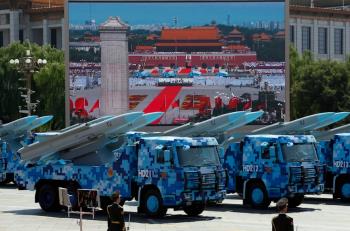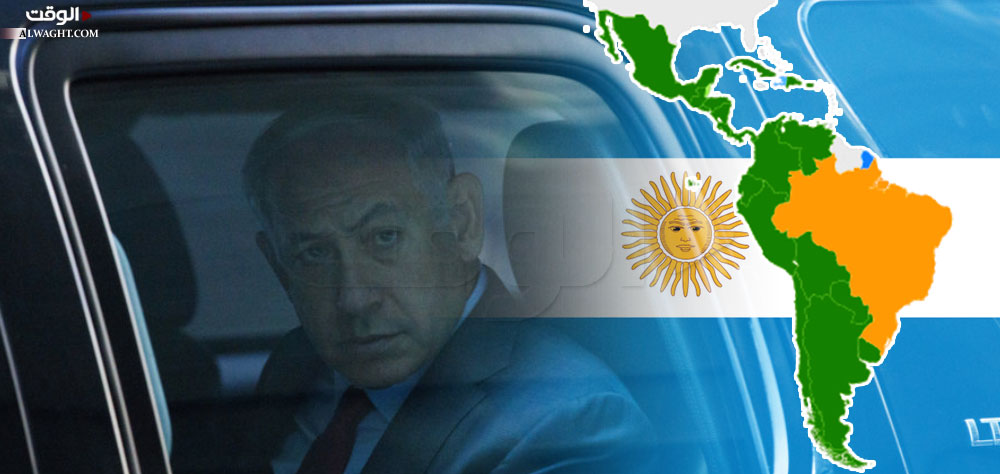Alwaght- Israel is in constant quest for allies that can cast their votes in favor of the regime at the UN. This effort by the Israelis is made as they are often condemned by the world body for their regular violation of the human rights as they continue to occupy the Palestinian territories. Concerns over persistent UN condemnations push the Israeli leaders to conceive of ways to find new valves on the world stage.
The Israeli Prime Minister Benjamin Netanyahu periodically travels to different countries with the intention to make new allies. The target countries are often grappling with multiple internal challenges and are subservient to the US. This kind of countries are carefully chosen to stand beside the Israeli regime at the international organizations and help scale down the pressures on Tel Aviv by different sides for its occupation of Palestinian lands and construction of illegal settlements in the seized lands. The Israelis head to the Latin American countries where they can offer aid packages to the economically-stressed nations and thus pave the way for penetration.
Determined to boost relations with the Latin American states to get a toehold in the Caribbean Sea, Netanyahu chose Argentina as first destination of his Latin America trip that will see him also visiting other countries of the region. Argentina was picked as the initial promised land of the Jews by the First Zionist Congress of 1897 in Basel, Switzerland, but later Palestine received the title and thus fell victim to occupation.
Upon his arrival, the Israeli PM is planned to lay wreath at the memorial of the victims of the 1992 Israeli embassy bombing in Buenos Aires as well as the victims of the 1994 Jewish center, AMIA, attack. After two-day visit, September 11 and 12, Netanyahu will fly to Colombia on September 13, and next day will go to Mexico. The PM is expected to meet the three countries' officials as well as representatives of the Jewish communities there. Then he will fly to New York where he will deliver his speech to the United Nations General Assembly on September 19.
Diplomacy is not the only drive behind the Israeli regime’s attempts to open channels for relationship with the Latin America and the Caribbean Sea countries. Other things like the rich resources of raw material, oil and gas, and geopolitical position catch Tel Aviv attention. Netanyahu's recent trip is indicative of the Israeli regime’s intention to seriously invest in a part of the world where, beside the economic advantages, Tel Aviv faces less public sensitivity and opposition. It appears that the Israeli leaders are trying to seize the moment for influence in the Latin America while the US presence there is not that strong. Tel Aviv is not only thinking about preserving its security in the chaos-hit West Asia, but also it pursues economic interests in other parts of the world.
Similar to the American struggle for holding sway over the Latin American countries, the Israeli regime endeavor for intervention and influence in a majority of the region’s countries is undeniable. Tel Aviv was granted observer status in the Pacific Alliance, an economic trade organization of several major Latin and Central American countries in 2014 following garnering support of the four countries of Chile, Peru, Mexico, and Colombia. The US welcomed the status because the Israeli type of policy in the Latin America fits in the larger American policy in the same region.
The Latin America is now one of regions where the countries are putting to work new political and economic mechanisms in a bid to transform their region into a power. The abundant potentials for growth and development are existing as Latin America enjoys rich natural and energy resources. The West has a long history of fueling the domestic wars, supporting military coups, and backing puppet dictators in the region all to seize control of the Latin America's resources.
A principle among the Latin American countries is highly noticeable today and it is confronting the overbearing powers and playing an active role on the global stage. What is even more noticeable are the antipathetic sentiments to the Israeli regime in solidarity with the Palestinians. The pack of regional countries is now one of the major global pro-Palestinian hubs.
Many Latin American nations do not hold a positive approach to Tel Aviv, and have expressed their serious opposition to the Israeli regime at the international organizations.



























